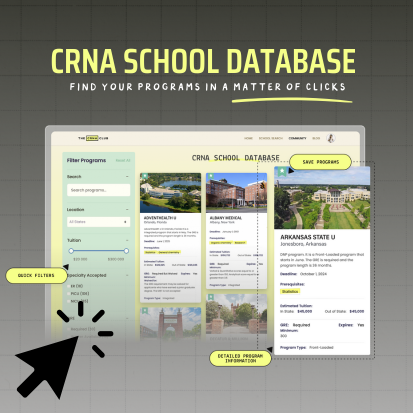- Resilience & Renewal: Examining Nigeria’s Evolving Landscape with nigeria news today and the Drive for Economic Diversification.
- Economic Diversification: Beyond Oil Dependence
- The Security Landscape: Challenges and Responses
- Political Reforms and Governance
- Decentralization and Fiscal Federalism
- Technology and Innovation: A Catalyst for Growth
Resilience & Renewal: Examining Nigeria’s Evolving Landscape with nigeria news today and the Drive for Economic Diversification.
Nigeria stands at a pivotal moment, navigating a complex landscape of economic, social, and political challenges. Understanding the current situation requires a comprehensive examination of recent developments, and nigeria news today provides crucial insights into the nation’s trajectory. The drive for economic diversification, coupled with efforts to enhance security and governance, forms the core of the nation’s ongoing renewal. This article delves into these key areas, exploring the factors shaping Nigeria’s present and outlining potential pathways for a more prosperous future.
The nation’s story is one of resilience, marked by periods of significant growth and considerable hardship. Recent events, including shifts in global markets and internal political dynamics, have amplified existing vulnerabilities. However, these challenges also present opportunities for innovation and reform, particularly in sectors beyond oil and gas.
Economic Diversification: Beyond Oil Dependence
For decades, Nigeria’s economy has been heavily reliant on crude oil exports. This dependence has left the nation susceptible to fluctuations in global oil prices, creating economic instability. Recognizing this vulnerability, the government has actively promoted diversification strategies, seeking to bolster non-oil sectors such as agriculture, manufacturing, and technology. Significant investments are being made in infrastructure to support these emerging industries, and initiatives are being implemented to improve the ease of doing business. However, progress has been uneven, and significant hurdles remain. The success of diversification hinges on addressing infrastructural deficits, promoting investments, and fostering a conducive business environment.
| Agriculture | 23.2% | 4.4% |
| Manufacturing | 16.8% | 3.9% |
| Oil & Gas | 41.5% | -2.1% |
| Services | 18.5% | 5.1% |
The Security Landscape: Challenges and Responses
Nigeria continues to grapple with significant security challenges, particularly in the North-East and North-West regions. The Boko Haram insurgency, though weakened, remains a threat, while banditry and farmer-herder conflicts have escalated in recent years. These conflicts have displaced millions of people and exacerbated humanitarian crises. The Nigerian government has intensified military operations and implemented various peace-building initiatives. However, addressing the root causes of insecurity, such as poverty, inequality, and climate change, is crucial for sustainable peace. Furthermore, strengthening community policing and promoting inter-ethnic dialogue are essential components of a comprehensive security strategy.
- Strengthening Military Capacity – Investing in modern equipment and training.
- Addressing Root Causes – Tackling poverty, inequality, and resource conflicts.
- Community Engagement – Building trust and collaboration between security forces and local communities.
- Regional Cooperation – Enhanced collaboration with neighboring countries to combat cross-border crime.
Political Reforms and Governance
Strengthening democratic institutions and promoting good governance are vital for Nigeria’s long-term development. Recent electoral reforms aim to enhance the transparency and credibility of the electoral process. However, challenges remain, including allegations of corruption, vote buying, and electoral violence. Promoting transparency and accountability in public institutions is critical for building public trust and fostering sustainable development. Additionally, empowering civil society organizations and promoting freedom of the press are essential components of a vibrant democracy. A key consideration is the need for judicial independence and the rule of law, ensuring fair and equitable access to justice for all citizens. The pursuit of political stability and inclusive governance will determine the future of Nigeria.
Decentralization and Fiscal Federalism
A recurring debate within Nigeria centers around the optimal structure of governance, specifically the balance of power between the federal government and the states. Many stakeholders advocate for greater decentralization and the implementation of fiscal federalism, arguing that this would allow states to have greater control over their resources and promote more responsive governance. This entails a re-evaluation of revenue allocation formulas and a devolution of certain powers currently vested in the federal government. Proponents believe this would foster greater competition among states, incentivize economic development, and address regional grievances. However, concerns exist regarding the capacity of states to manage increased responsibilities and potential for disparities in resource endowment to exacerbate inequalities. The current structure, while providing a common framework, often leads to bottlenecks and inefficiencies in resource allocation, hindering effective service delivery at the local level.
Technology and Innovation: A Catalyst for Growth
Nigeria’s burgeoning tech sector is emerging as a significant driver of economic growth and job creation. The country boasts a vibrant ecosystem of startups and entrepreneurs, particularly in fintech, e-commerce, and digital media. Access to funding remains a key challenge for many startups, but there is growing investment from venture capitalists and angel investors. Furthermore, creating a supportive regulatory environment is essential for fostering innovation and attracting foreign investment. The government is actively promoting digital literacy and skills development to harness the potential of the digital economy. Investing in digital infrastructure, such as broadband internet access, is also critical for bridging the digital divide and unlocking the benefits of technology for all citizens.
- Increased investment in broadband infrastructure.
- Development of a skilled digital workforce.
- Creation of a favorable regulatory environment.
- Promotion of digital literacy and inclusion.
| Fintech | 15.4 | 25% |
| E-commerce | 12.7 | 18% |
| Digital Media | 8.2 | 22% |
| Software Development | 6.5 | 15% |
| Lagos-Kano Railway Modernization | 8.3 | 2025 |
| Second Niger Bridge | 1.7 | 2024 |
| Abuja Light Rail Project | 1.2 | 2024 |
Nigeria’s pathway forward requires a multifaceted approach, addressing economic vulnerabilities, security challenges, and governance deficits. By harnessing the potential of its youth, leveraging technology, and promoting inclusive development, the nation can overcome obstacles and build a more prosperous future for all its citizens. Continued attention to the unfolding dynamics, as reported by nigeria news today, will be crucial for informed decision-making and effective policy implementation.


